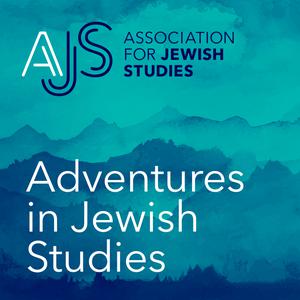
Adventures in Jewish Studies Podcast
Association for Jewish Studies
- 26 minutes 17 secondsDeath & Community: Jewish Burial Societies
The Jewish life cycle includes rituals and customs to mark major rites of passage – birth, coming of age, marriage and parenthood. Likewise, there are traditions of how to navigate death and mourning, including how to care for the deceased and comfort the living, which is where we find Jewish burial societies.
In this episode, guest scholars Cornelia Aust, Samuel Heilman, and Howard Lupovitch, along with host Avishay Artsy, look at the history of Jewish burial societies, how they have served their communities, and how they continue to evolve today.
22 January 2025, 2:53 pm - 42 minutes 8 secondsAround the World with Jewish Newspapers
In this episode, host Erin Phillips and guest scholars Zachary Baker, Philip Keisman, and Devin E. Naar discuss four Jewish newspapers from across the 19th and 20th centuries. Every detail in their pages provides clues about Jewish life in a particular time and place - from the advertisements in their margins, to letters to the editor, to even the news articles they chose to excerpt from other publications, these newspapers provide scholars with a valuable window into a historical, geographical, and linguistic cross-section of Jewish history.
20 November 2024, 6:49 pm - 26 minutes 28 secondsAlternative Zions: The Jewish Territorialist Movement
The quest for a homeland, to journey from bondage and persecution, has been inherent to Jewish history for as long as it’s been told. In this episode, join scholars Laura Almagor and Adam Rovner and guest host Devan Schwartz in exploring the Jewish Territorialist Movement. We’ll travel back in time and across the globe to explore proposed alternative homelands for the Jewish people – and what these projects teach us about Jewish history and culture to this very day.
21 October 2024, 3:00 pm - 36 minutes 8 secondsWhat Makes Someone Jewish?
In this episode, host Avishay Artsy and guest scholars Noah Feldman, Susannah Heschel, and Shaul Magid consider what makes someone Jewish by asking three questions: What are the Jews exactly? What do Jews believe, and how central is religion to Jewish identity? Where does the Jewish state fit into Jewish identity?
10 September 2024, 5:45 pm - 38 minutes 43 secondsJewish Head Coverings: A Blessing On Your Head
The yarmulke has become an almost universal symbol of Judaism; however, Jews around the world cover their heads and hair in many different ways, including hats, wigs, and scarves. This custom isn't Jewish law, but was developed over centuries as a community norm that continues on in a variety of ways today.
In this episode, guest scholars Eric Silverman and Amy K. Milligan discuss the history and practice of head and hair covering – and what the practices reveal about Jewish experiences of gender, assimilation, and antisemitism.
Images of the styles discussed in this episode are available at associationforjewishstudies.org/headcoverings.
20 June 2024, 1:26 pm - 1 minute 30 secondsIntroducing the AJS Critical Sources Podcast
As a listener of Adventures in Jewish Studies, we hope you'll also listen to the new AJS podcast, Critical Sources.
Critical Sources features Jewish studies scholars discussing a source that matters to them, offering a window into how scholars seek evidence, ask questions, and interpret the past and present.
Host Avinoam Patt asks five different scholars to discuss a source—a poem, a speech, an object—that’s been on their mind since the October 7 massacre in southern Israel and in the months of war following it. How did they think about it before October 7, and what has it meant to them since?
26 March 2024, 6:00 pm - 38 minutes 51 secondsYiddish Socialists and the Garment Industry
A century ago, Jews were at the center of the American garment industry and at the forefront in the battle for those workers’ rights. In this episode, host Avishay Artsy speaks to Daniel Katz and Caroline Luce about how Yiddish-speaking immigrants fused class and culture to empower generations of garment workers.
12 February 2024, 3:58 pm - 33 minutes 7 secondsRethinking Holocaust Education
A sharp rise in antisemitic incidents has led to increased calls for mandatory Holocaust education. In this episode, host Avishay Artsy speaks with educators Sarah Ellen Zarrow and Jody Spiegel about the use and misuse of Holocaust memory for combating antisemitism.
13 December 2023, 7:51 pm - 38 minutes 17 secondsJews in Colonial America
This episode of Adventures in Jewish Studies explores the lives of Ashkenazi and Sephardic Jews who settled in what are now the states of Georgia, New York, Pennsylvania, Rhode Island, and South Carolina as far back as the late seventeenth century. These early settlers, who came escaping religious persecution and seeking trade opportunities, reflect how entwined Jews have been in shaping American history. Guest scholars Shari Rabin and Toni Pitock, along with host Erin Phillips, discuss what we know about these early Jewish settlers, why information is limited, and how researchers are working to learn more.
24 October 2023, 3:23 pm - 39 minutes 12 secondsJewish Pilgrimages
Throughout the world, Jewish diaspora communities set out on pilgrimages to visit holy sites in search of wisdom, healing, and blessings. But these pilgrimage journeys, no matter where or why they take place, are about much more than the physical destination. In this episode, host Erin Phillips and guest scholars Adane Zawdu-Gebyanesh, Chris Silver, and Alexandra Mandelbaum take us on three Jewish pilgrimages as they explore the social and spiritual functions of Jewish pilgrimages and discover common elements that tie all kinds of Jewish pilgrims together.
31 May 2023, 5:24 pm - 27 minutes 58 secondsThe Many Lives of Kabbalah
Kabbalah, one of Judaism’s most sacred schools of thought, has served as a wellspring of Jewish faith, a portal to mystical knowledge, and a bridge for intercultural and interreligious exchange. In this episode, host Avishay Artsy speaks with guest scholars Clémence Boulouque and Hartley Lachter about the many lives of Kabbalah.
3 May 2023, 3:23 pm - More Episodes? Get the App
Your feedback is valuable to us. Should you encounter any bugs, glitches, lack of functionality or other problems, please email us on [email protected] or join Moon.FM Telegram Group where you can talk directly to the dev team who are happy to answer any queries.
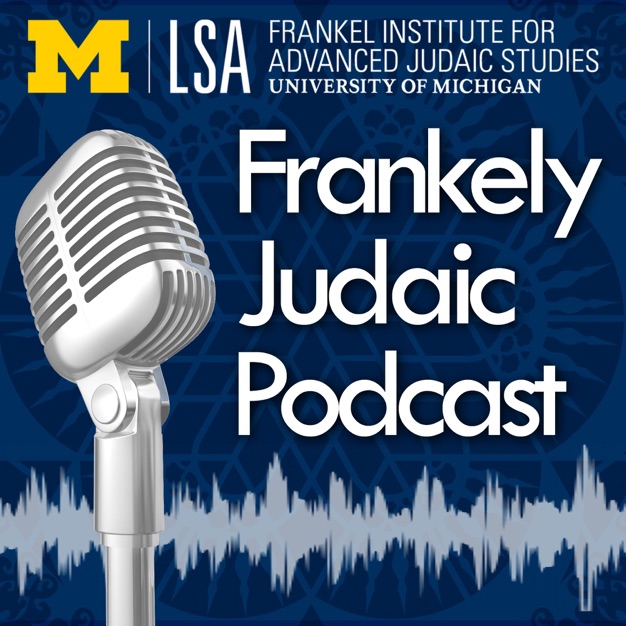 Frankely Judaic: Explorations in Jewish Studies
Frankely Judaic: Explorations in Jewish Studies
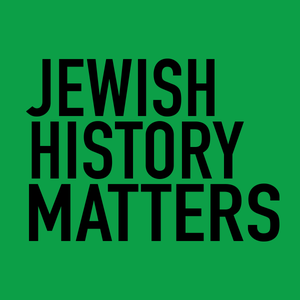 Jewish History Matters
Jewish History Matters
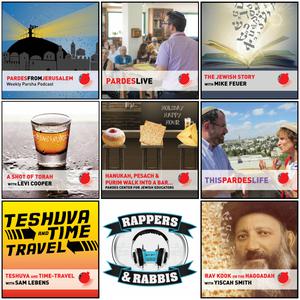 Pardes Live and Mini-Series
Pardes Live and Mini-Series
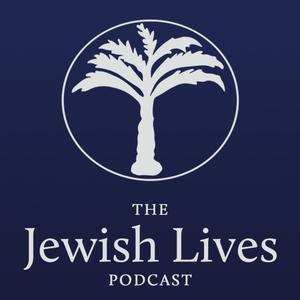 The Jewish Lives Podcast
The Jewish Lives Podcast
 The Evolution of Torah: a history of rabbinic literature
The Evolution of Torah: a history of rabbinic literature
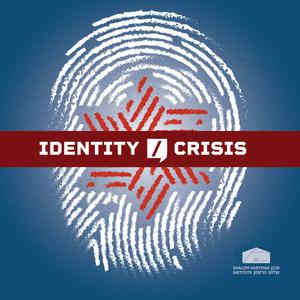 Identity/Crisis
Identity/Crisis